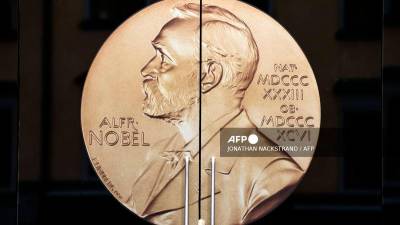STOCKHOLM: Some Nobel Prize winners achieved scientific greatness despite following highly unconventional educational paths rather than traditional academic excellence.
Albert Einstein, perhaps the most famous Nobel laureate, was once a mediocre student at Zurich Polytechnic School who frequently skipped classes and finished second-last in his graduation cohort.
The young physicist showed such limited promise that he became the only graduate in his class not offered a research assistant position at what is now ETH Zurich.
Einstein eventually received the Nobel Prize in Physics in 1921 for his groundbreaking work on theoretical physics.
Frances Arnold, who won the 2018 Nobel Prize in Chemistry, described herself as a disruptive student who found conventional classroom teaching boring and inadequate.
“I was disruptive. I was just bored and well beyond what the rest of the kids in the class were doing,“ she recalled in an interview with AFP.
The future laureate eventually stopped attending school regularly during her teenage years and was ultimately expelled for her persistent absences.
Arnold acknowledged that her educational approach wasn’t ideal but criticized schools for lacking flexibility with gifted students who learn differently.
David Card, the 2021 economics Nobel laureate, began his education in a unique one-room Canadian schoolhouse where multiple grade levels learned together.
“There’s almost nobody I’ve met… in an economics PhD programme that has a background like mine where they went to a rural school,“ he told AFP.
Card credited his unusual early education with allowing him to accelerate quickly by listening to lessons intended for older students.
Several other Nobel laureates overcame significant academic challenges before achieving scientific recognition.
Elinor Ostrom faced rejection from economics PhD programs before becoming the first woman to win the economics Nobel.
Carol Greider struggled with dyslexia during childhood before winning the 2009 medicine prize.
Tomas Lindahl actually failed high school chemistry before eventually winning the 2015 Nobel Prize in Chemistry.
Both Arnold and Card gained valuable life experience through early employment before discovering their scientific passions.
Arnold worked various jobs including waitress, receptionist and taxi driver during her teenage years.
“You appreciate more what the university education can give to you, in terms of getting a job you actually might want to have for the rest of your life,“ she reflected.
Card balanced school with farm work from an early age, learning to drive a tractor at 11 and helping with morning milking before classes.
The two Nobel winners also explored different academic fields before settling on their eventual specialties.
Arnold initially studied mechanical engineering and aeronautics before switching to chemistry.
Card began his university education in physics before discovering his passion for economics.
These unconventional journeys demonstrate that Nobel-level achievement can emerge from diverse educational backgrounds and personal struggles. – AFP
